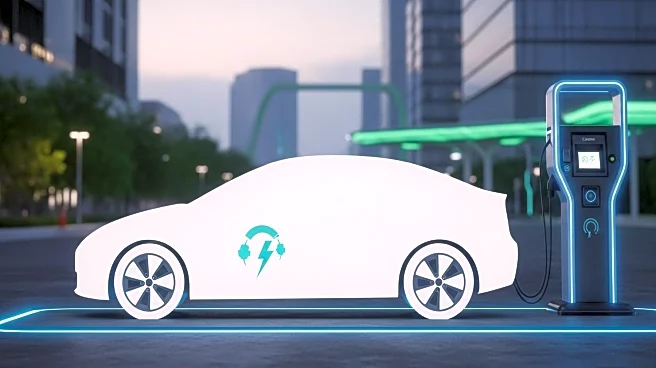What's Happening?
Tesla has unveiled new, more affordable versions of its Model 3 and Model Y vehicles, named the Model 3 Standard and Model Y Standard. The Model 3 Standard is priced at $38,630, while the Model Y Standard starts at $41,630. These models are set to be available by the end of the year, following the expiration of the $7,500 tax credit for American buyers. The Standard versions offer fewer features compared to the Premium models, such as reduced interior amenities and performance capabilities. This move comes as Tesla faces increased competition in the electric vehicle market, with other automakers introducing lower-priced EV options.
Why It's Important?
Tesla's introduction of cheaper models is a strategic response to the growing competition in the electric vehicle market, particularly from Chinese automakers like BYD. By offering more affordable options, Tesla aims to maintain its market share and appeal to a broader range of consumers. This decision could influence the pricing strategies of other EV manufacturers, potentially leading to more competitive pricing and increased accessibility of electric vehicles for consumers. Additionally, the move may help Tesla utilize excess capacity at its U.S. factories, as the company anticipates lower sales in the domestic market.
What's Next?
Tesla's decision to offer lower-priced models may prompt other automakers to follow suit, potentially leading to a price war in the electric vehicle market. As competition intensifies, manufacturers may focus on differentiating their products through technology, design, and sustainability features. Tesla's plans to introduce a less expensive version of the Model Y in China next year could further impact global EV market dynamics, as the company seeks to strengthen its position against local competitors.
Beyond the Headlines
The introduction of cheaper Tesla models highlights the challenges faced by the company in balancing affordability with innovation. As Tesla navigates the competitive landscape, it must also address potential backlash from CEO Elon Musk's political activities, which have affected the company's reputation. The evolving market dynamics may require Tesla to reassess its branding and marketing strategies to maintain consumer trust and loyalty.








